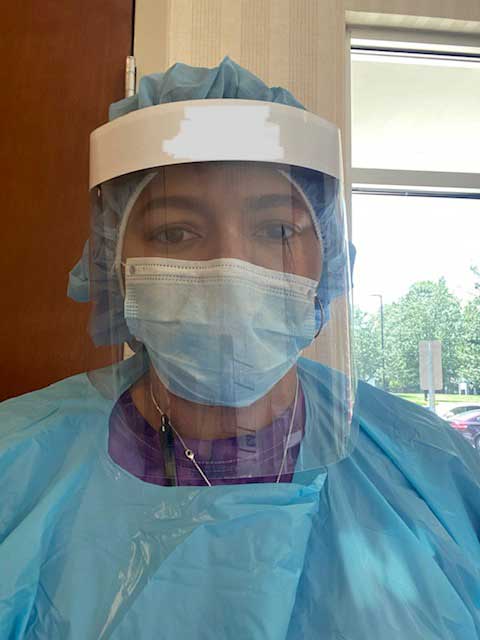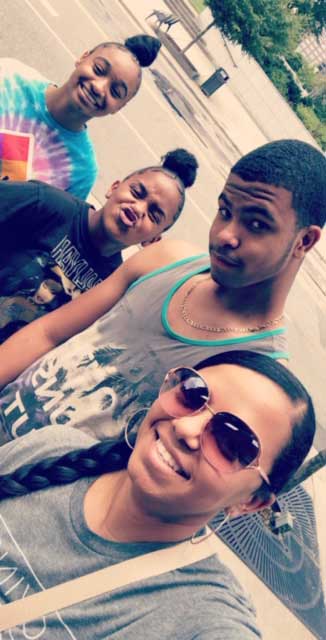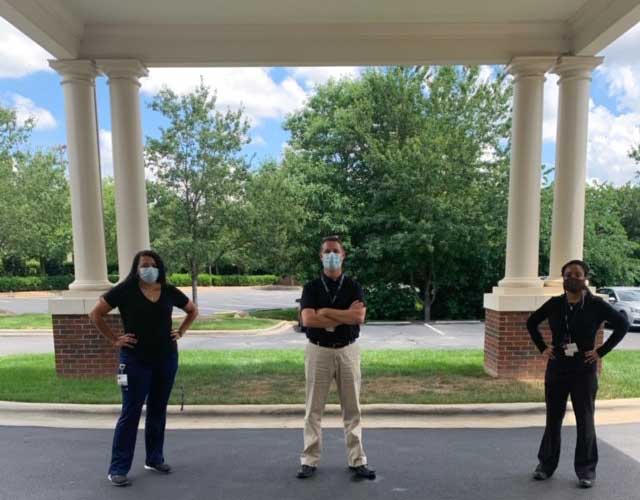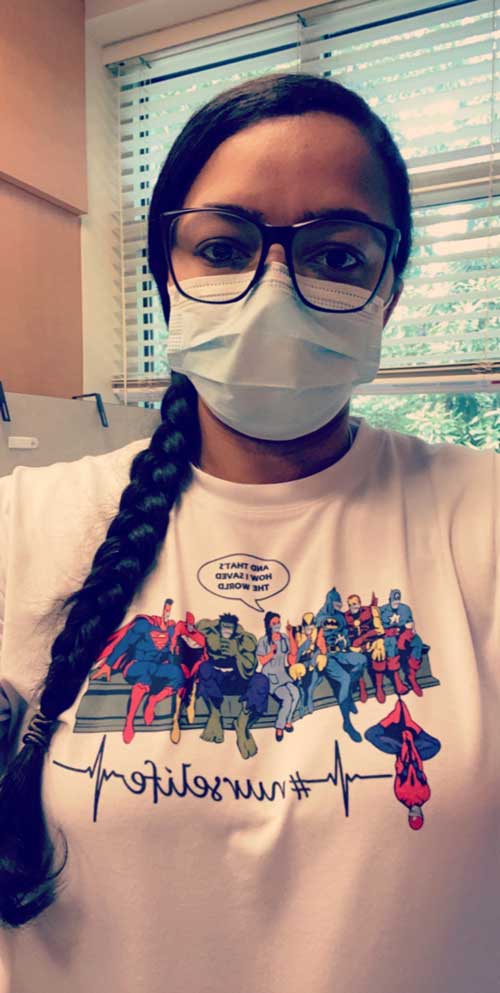‘When I come to work at Novant Health, they see a nurse. They don’t see a Black nurse’
Angela Davis faced her share of discrimination — until she came to Novant Health

When Angela Davis was 18 years old, she met a nurse who changed her life.
She was living in Sumter, South Carolina, and had just given birth to her first child.
“As a young and new parent with a premature baby, I had no idea what to do,” she said. “I remember being in the nursery, and the nurse there, Ms. Elaine, took the time to show me what to do and how to do it. She took the time to explain all these big fancy words they were using. She really started something in me, and I remember wanting to make people feel the way she made me feel.”
Davis made it through those first few uncertain months and all the years of motherhood that followed, recently celebrating her son’s 19th birthday. Davis’ career grew, too, over the years, and she is now a clinical supervisor at Novant Health Huntersville Pediatrics & Internal Medicine. She’s a nurse and a clinical leader, during one of the most challenging times in healthcare. She’s also Black, and as the national movement for social justice and racial equality has gained unprecedented momentum, she’s found herself in a whole new reality.
“Before I came to Novant Health, I had patients who literally told me to my face that I’m not as smart. I’ve had a patient yelling up the hallway saying he didn’t want the ‘n-word’ nurse taking care of him,” Davis said. “It’s hard enough dealing with the demands of a changing healthcare system and making sure that you care for patients from different cultures and backgrounds, and then for people to say things like that just because of the color of your skin, it just blows my mind.”
Although those behaviors defined her past as a Black nurse, they do not define her present.

A few weeks ago, Davis and her team members took part in a peaceful protest that is part of a broader movement across healthcare institutions called White Coats for Black Lives. For eight minutes and 46 seconds, Davis knelt outside Novant Health Huntersville Pediatrics & Internal Medicine. Next to her was a colleague — a white physician named William Flannery.
“As I’m kneeling there, I saw him praying, and it just brought tears to my eyes,” Davis said. “I just imagine that his prayers are for this world to be a better place for me and my children and people who look like me and for our patients. It was just a really eye-opening moment: It’s not just people who look like me who want change and equality; it’s everybody.”
In truth, that has been her experience since she joined Novant Health.
“I had no idea when I started with Novant Health how big they were with diversity and inclusion. It’s not just saying it for show. We really do this,” Davis said. “I look at people who are way higher up than me, and I see women, Black women, Black men, Asians and Hispanics. And it really means a lot because, for me, it shows me that I can go as far as I want to with this organization. My race, my gender — they don’t limit me at all.”
But gender and ethnicity are increasingly a subject of conversation as longstanding, systemic issues about race and discrimination grip the nation. As a result, Davis has instituted a policy of transparency within her team.

“I told my team there is nothing off limits for me if they need me or they want to talk to me,” Davis said. “We’re here to help heal people, and we don’t realize that our words can be a lot more healing than our actions. I tell my team to try to be understanding. And if you don’t understand, we’re here to help each other understand.”
As a mother, Davis encourages that technique among her children, as well. In addition to her 19-year-old son, she has two daughters, ages 15 and 13. And she tells them to treat people the way they want to be treated, no matter what.
“You never treat people the way they treat you because, when you fight fire with fire, you’re no better than them,” Davis said. “My daughter and I had that conversation. I asked her, ‘When you fight fire with fire, what happens to the fire?’ She said, ‘It gets bigger.’ And I said, ‘You have to start fighting fire with what’s going to put that fire out: water.’”

On the day Davis and Flannery knelt to recognize the White Coats for Black Lives movement, a colleague took a photo of them. His head is bowed as he holds a sign that reads “White Coats for Black Lives.” Davis’s head is lowered, too, and her fist is held high in the air.
Davis posted the photo on social media in the hours after the silent protest. In that post, she wrote: “Today, I got to kneel with this doctor who believes my voice and life matter. I watched him turn his hands to God and pray for a better world for me, his clinical supervisor and his patients. It gave me the strength to raise a fist to be proud of the Black woman and nurse God made me and called me to be. I am proud to say I work for an organization that prides itself on diversity and inclusion and has gone above and beyond to help me and others that look like me know that we matter!”
Davis recognizes the social justice work is not done. At the same time, she takes pride in the fact that her organization is taking a stand, in public and powerful ways.
“At Novant Health, they see a patient. They don’t see a Black patient. When I come to work at Novant Health, they see a nurse. They don’t see a Black nurse. They embrace that part of me, and it makes me really happy to be part of this team,” Davis said.
Support the work of Davis and other front-line workers like her.
A donation to the Novant Health Presbyterian Medical Center Foundation allows us to support vital patient care, as well as to support workers who spend every day fighting to ensure those patients lead long, healthy lives. Join us and make your gift today.